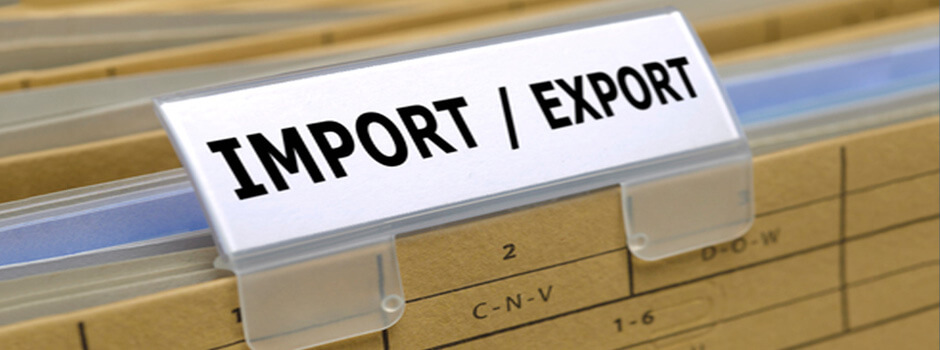In recent years, reliance on global supply chains has led to increased risks.
Not only for U.S. companies but our economy as a whole.
Nearshore outsourcing is the suggested solution from the White House. But with that comes the debate about how realistic an option it is.
Which is why you’re here.
Because you desire every advantage in the marketplace for your company. Is moving resources to another country the right move?
We’ll lead you to a more informed answer shortly!
What types of activities constitute a deemed export?
The Export Administration Regulations [EAR] defines the types of activities that will be considered a deemed export of technology. This includes: (1) where the technology is made available to foreign nationals for visual inspection; (2) when the technology is exchanged orally; or (3) when the technology is made available by practice or application. These broad definitions demonstrate how easily a deemed export can occur without any physical transfer: it might occur in conversation, during a site visit, or even by making your company’s internal systems available to outside consultants or contractors. This means that any US business that has shared technology or blueprints, discussed technology projects, has provided tours of facilities or other disclosures of information and technology to non-US nationals could very likely be deemed to have exported under US law. The mere visual inspection of a controlled technology by a foreign national is likely to be considered a deemed export!
An Entity List, maintained by the Bureau of Industry and Security [BIS], lists those foreign companies, research institutions, organizations and individuals that are subject to licensing requirements with regard to exports. These listed names are considered to be at higher risk of diverting exported materials or information to terrorism or the development of weapons of mass destruction.
Where is an export license required?
Where a business intends to transfer controlled technologies to a foreign national, it will need to apply for an export license if transfer of the same technology to that national’s home country would require an export license. Some things are exempt from the deemed export rule, including publicly available information and technology.
Companies operating in certain industries are more likely to be scrutinized for potential violations of deemed export laws. This includes aerospace, defense contracting, electronics, semiconductors, software, energy, telecommunications, manufacturing industries, biochemical and pharmaceutical research, and even universities. Companies engaged in high level technological research and development are also more susceptible to violations.
Research and development that occurs in foreign facilities are more likely to require a license. Where technology is developed (either fully or partially) in a foreign facility, especially when co-mingled with or drawn from certain controlled items, may require an export license simply for the development to take place. If your company is engaged in outsourcing either informational or technical production and development, it is critical to confirm that your business is not subject to export licensing requirements and that you are operating legally. Additionally, your company should carefully screen all foreign nationals, visitors, employees, buyers, and vendors for any covered items your company handles, as well as ensuring they are not on the BIS Entity List. Failing to ensure your ongoing compliance could lead to crippling export penalties.
Severe penalties for violation of deemed export rules
The EAR applies a broad interpretation of their regulations in order to capture a wide range of potential deemed export violations, which are subjected to very stiff penalties and fines. These penalties can be severe enough to destroy a small business, and this is not an uncommon occurrence. In 2020 alone, the BIS initiated 77 cases involving allegations of deemed export violations. One rather famous case involved deemed exports made from a University of Tennessee research program. A 72-year-old professor was sentenced to four years in federal prison for disclosing restricted military technology to Chinese nationals.1 An earlier model example involved a semiconductor company that exported military-grade logic devices and the related technical data to Chinese nationals in the United States, without obtaining the necessary export licenses. The company was assessed at $560,000 civil penalty.2
Companies should take this area of compliance extremely seriously, especially given how inadvertently a deemed export can occur. Violations of the law cannot be excused on the basis of ignorance, nor inadvertence. This means that companies must take proactive steps to implement policies and procedures to prevent an unlicensed export, including training your employees to understand the deemed export rules and the potentially disastrous consequences of non-compliance.
Get export compliance advice from a skilled US trade attorney
With our extensive background in US trade law and associated compliance regimes, Reidel Law can help companies identify potential deemed export problems and develop cost-effective solutions. We advise businesses of all sizes on a range of trade compliance issues, including audits and employee training and advising clients in proceedings before the Court of International Trade. Call Reidel Law Firm at (832)510-3292 or use the email button for advice on international trade compliance.
2 http://tradelawnews.blogspot.com/2004/09/bis-imposes-560000-penalty-for.html



